Submitted by WA Contents
A+Architecture completes conference center and casino complex with circular walkways in France
France Architecture News - Jul 10, 2019 - 23:41 30919 views
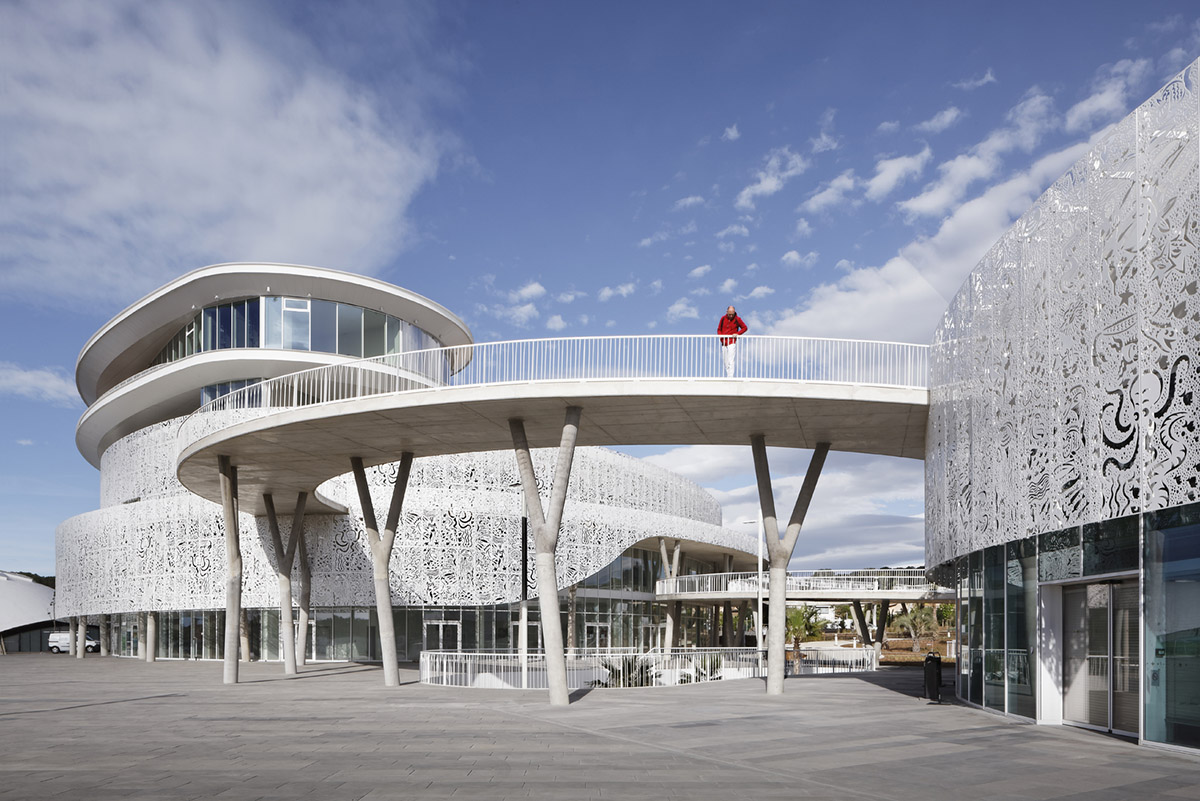
Paris and Toulouse-based architecture firm A+Architecture has completed a new urban centre, containing a conference center and a casino, at the gates of Cap d’Agde, France. Two major facilities are connected with circular walkways raised over white concrete pearls, signaling the renewal of this of this area.
Called Palais des Congrès & Casino Cap d’Agde, the new project is described as "between land and sea, between living garden, belvedere and sky, between mineral and organic: the birth of a new urban center."
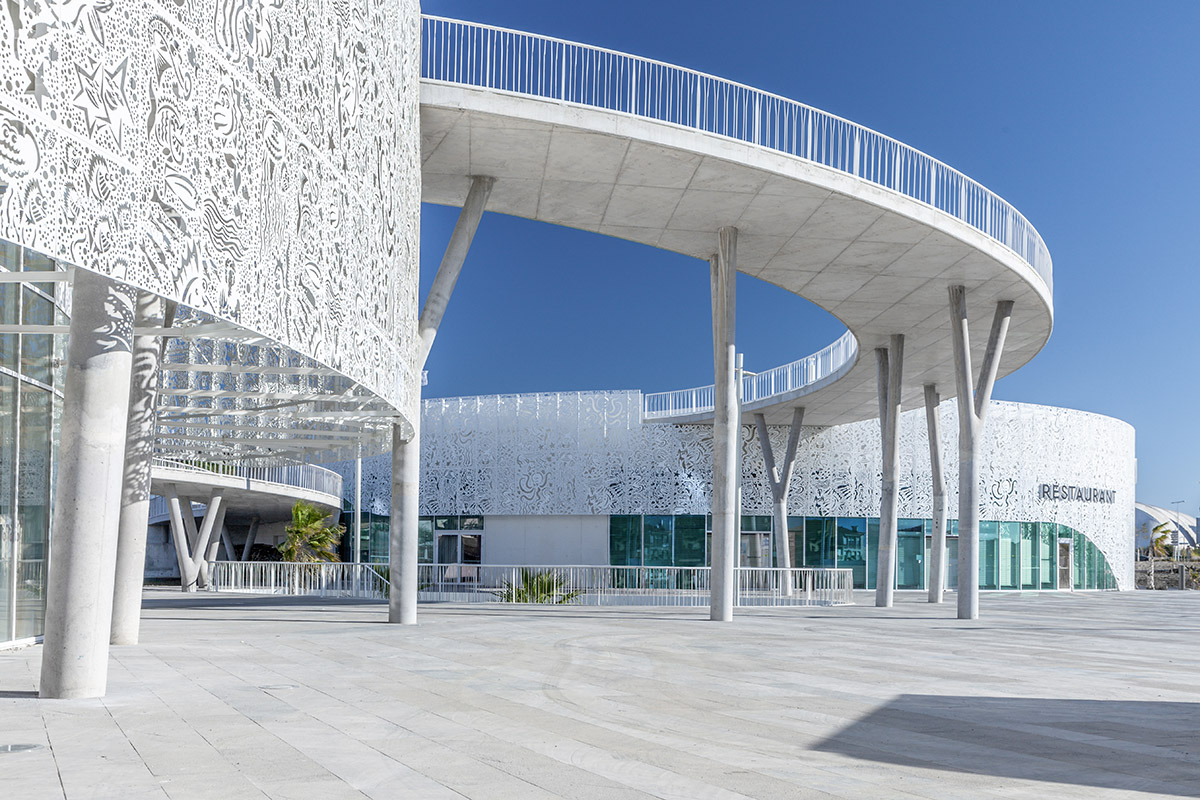
A vast gently sloping promenade links them to the port, the heart of this seaside town created by Jean Le Couteur during the Racine mission. Emblematic of the development, the Palais des Congrès has become the resort’s new showcase.
Connected to the Casino by a set of circular walkways, the complex offers a formidable and unprecedented three- dimensional pedestrian square that also creates a seamless connection between the new seaside resort in Agde and its historic town located a few kilometres inland.

The Palais hall extends over three levels, all three of which connect to one of the winding walkways. A very playful spatial organisation allows easy access from inside and outside, on foot or by bicycle, to all the facility’s services: lobby, exhibition hall, offices, meeting rooms and an auditorium with a seating capacity of 1,200, where turquoise blue, the only accent colour in this white complex, evokes the waves of the Mediterranean.
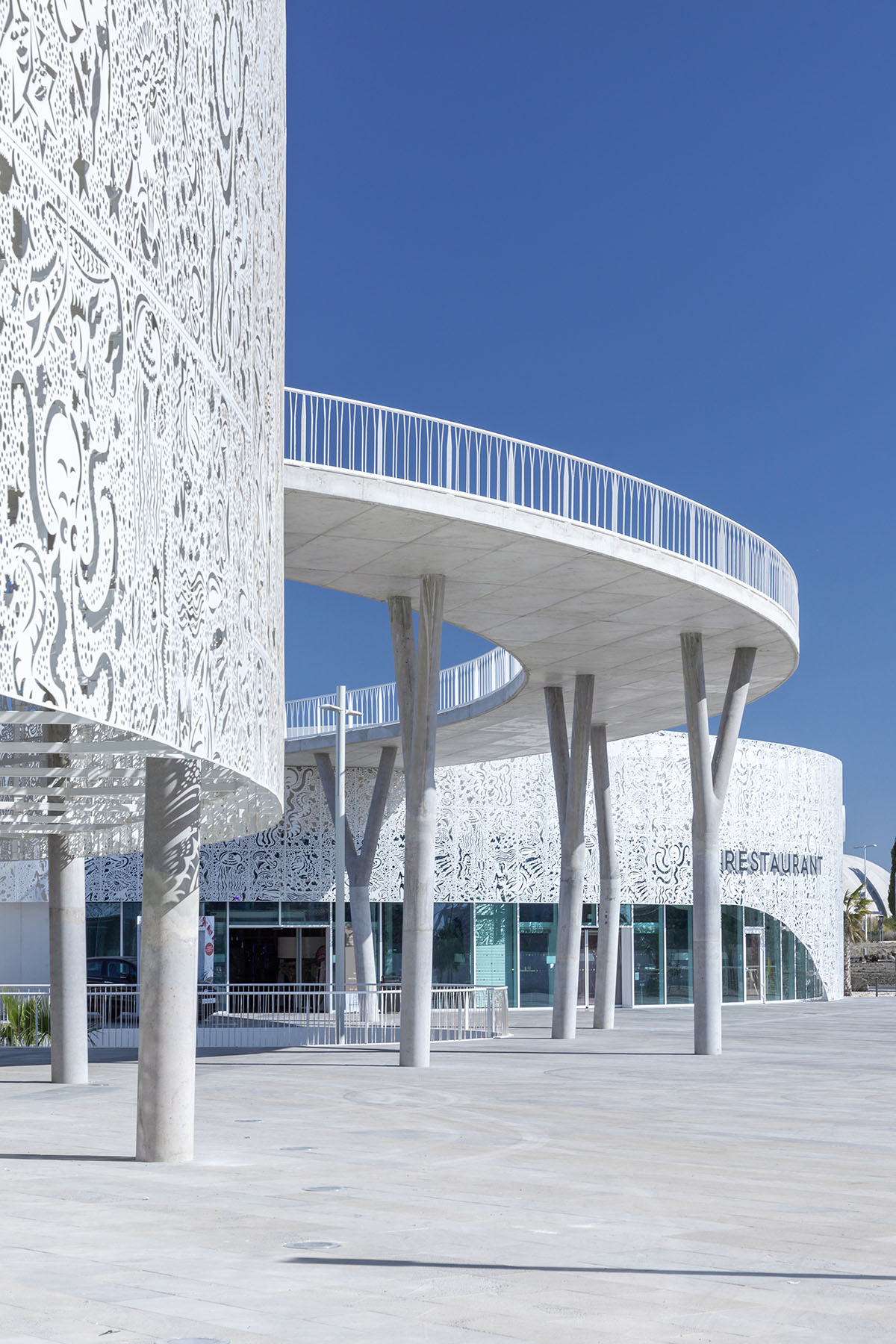
A large, gently sloping square is on the roof of the complex. Perched high above the site and on one side, a panoramic room, whose shape evokes a Solen (a bivalve shell commonly called a razor shell), offers exceptional views of the entire surrounding landscape.
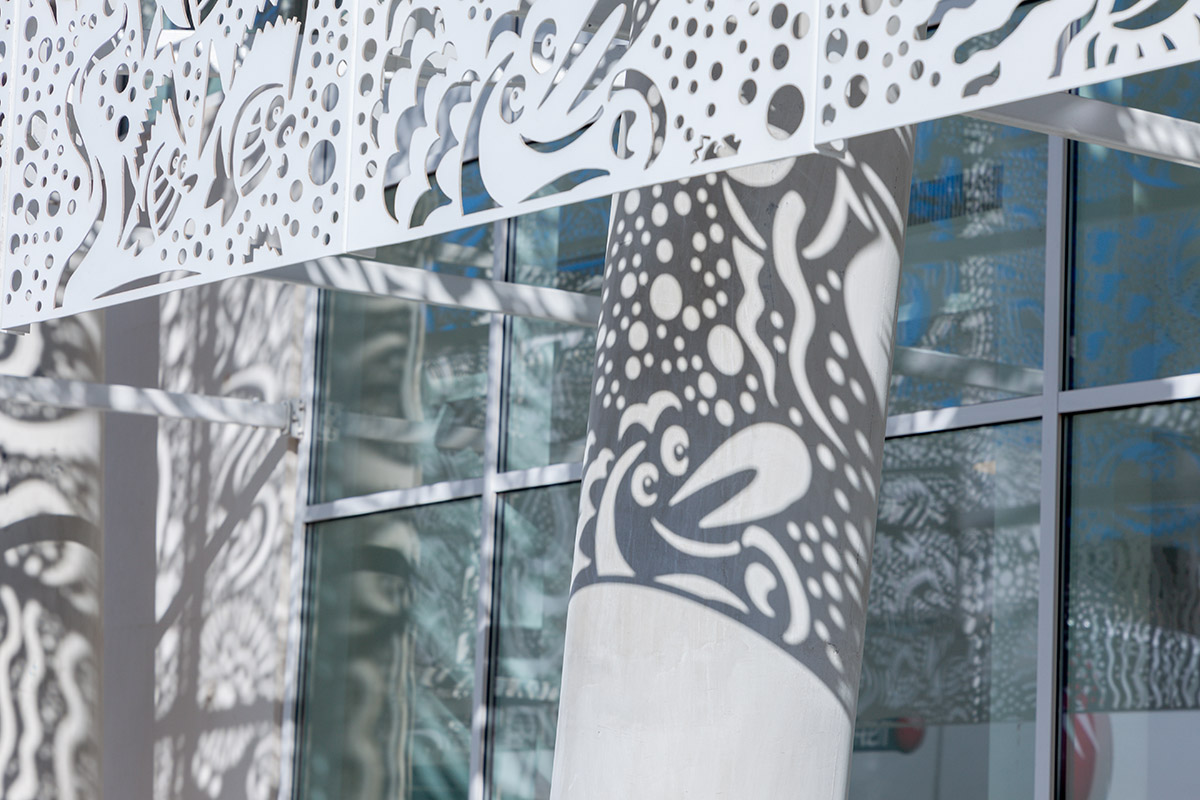
In close collaboration with A+Architecture, Hervé di Rosa, an artist from Sète, played with the theme of the seabed in a mischievous way to design the 2,900-square-metre white metal mesh sculpture that covers the two buildings of this belvedere between land, sea and sky.
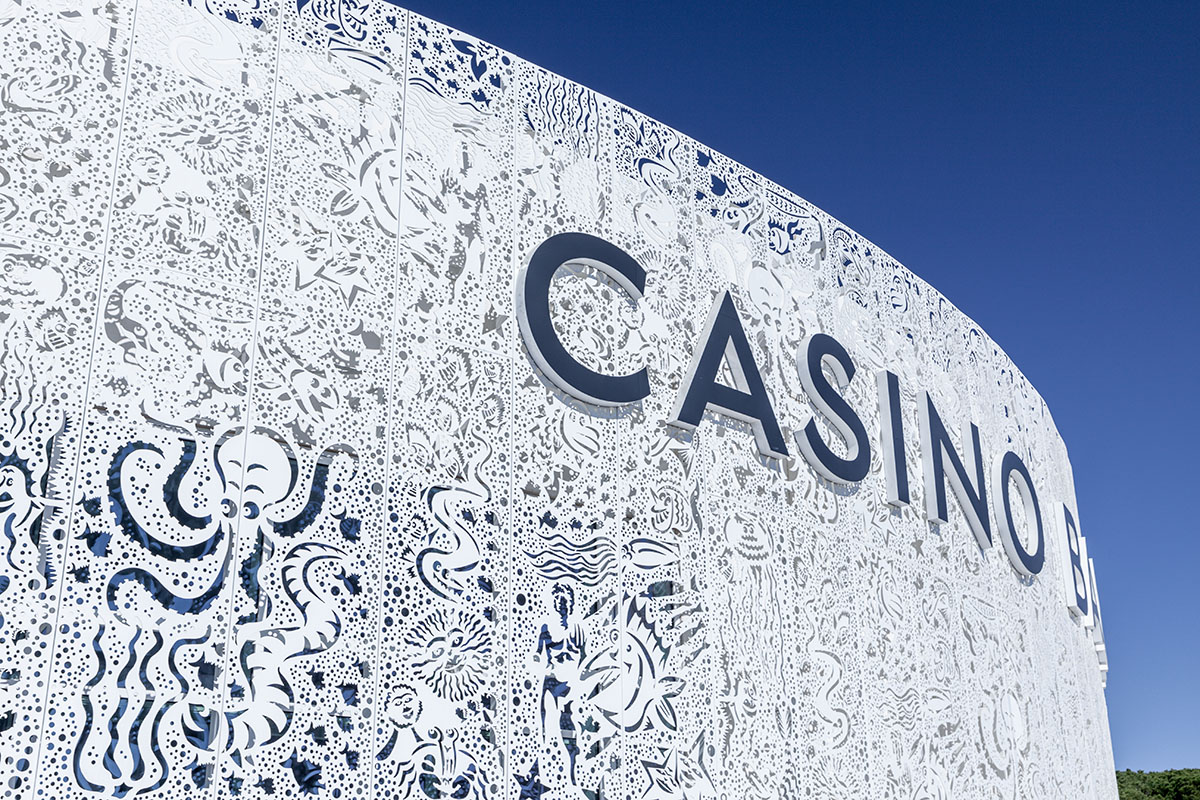
For the facades of the buildings, the artist Hervé di Rosa experimented two different types of works for the project: seascape paintings and cut metal sculptures.
For this piece, the artist combined both of these techniques and designed a cut-out metal seascape. "It exemplifies all the characteristic features of Di Rosa’s work: a generous accumulation, benevolent figures, an anchoring in the local area and evidence of drawing in the design," said A+Architecture.

Sea anemones, moray eels, sardines, jellyfish, starfish, clams, wolfish, octopuses, squid, St Pierre fish, crabs, sea bream, mullet, red mullet, damselfish and hake populate this living façade around the Youth of Agde statue, a local treasure.
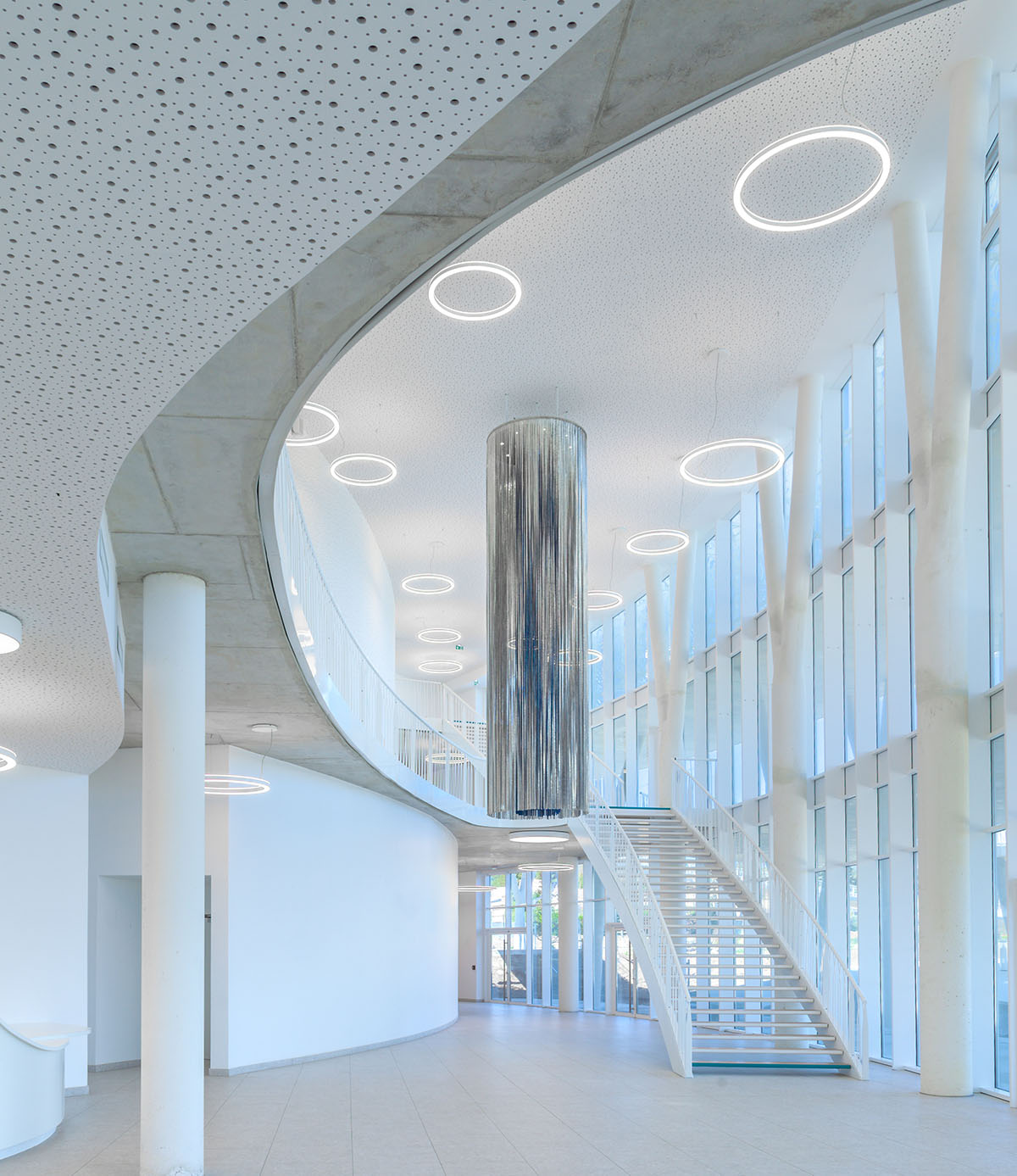
The work is composed of 6 panels, each of which is 90 cm wide and 3 m high. These 6 panels create a subtle repetition on the façade that combines symmetries and differences. It is through this work that art meets architecture.
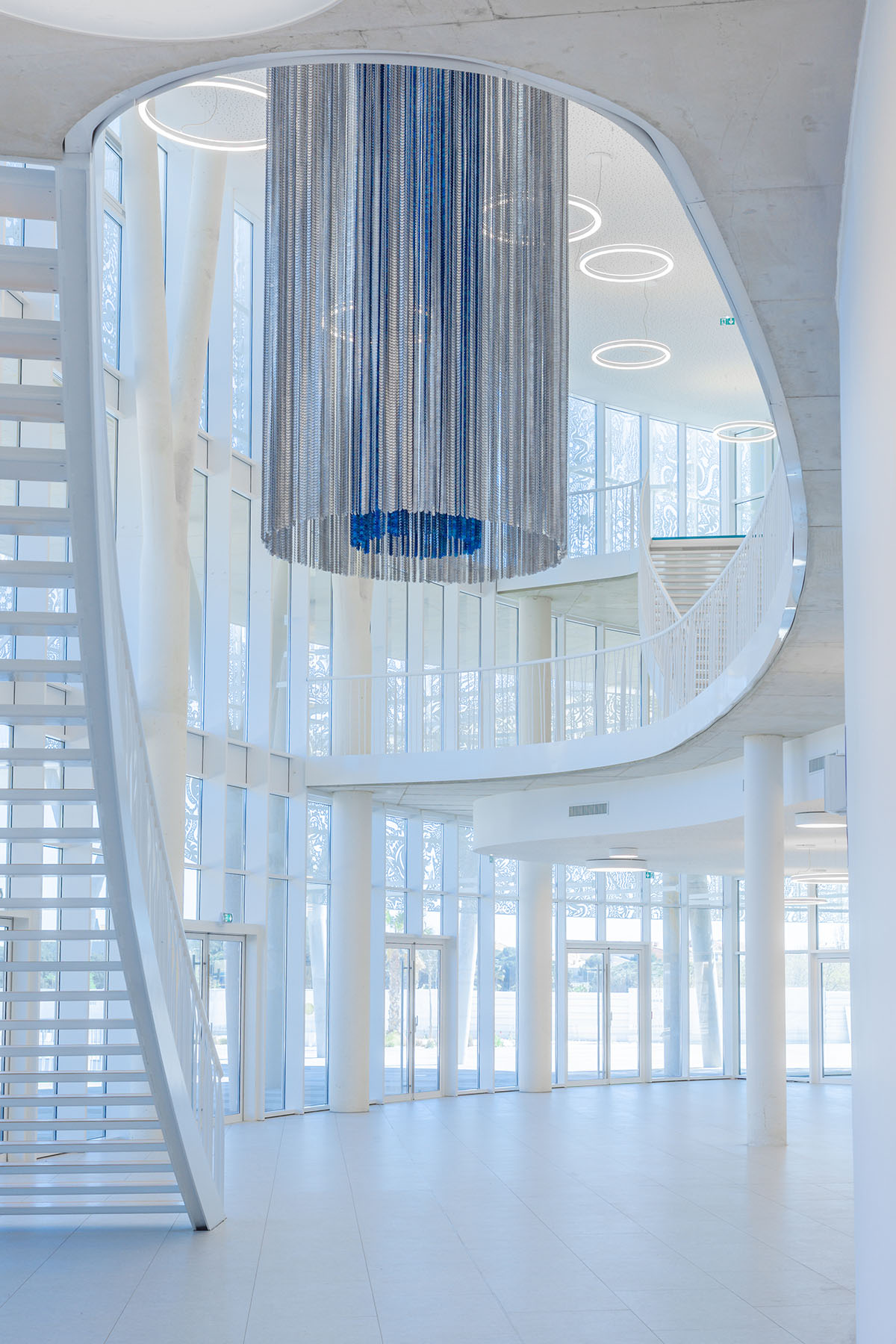
In addition to being the symbol of the renewal of Cap d’Agde, the conference centre and casino complex is thus also the largest work of art in the world of the artist.
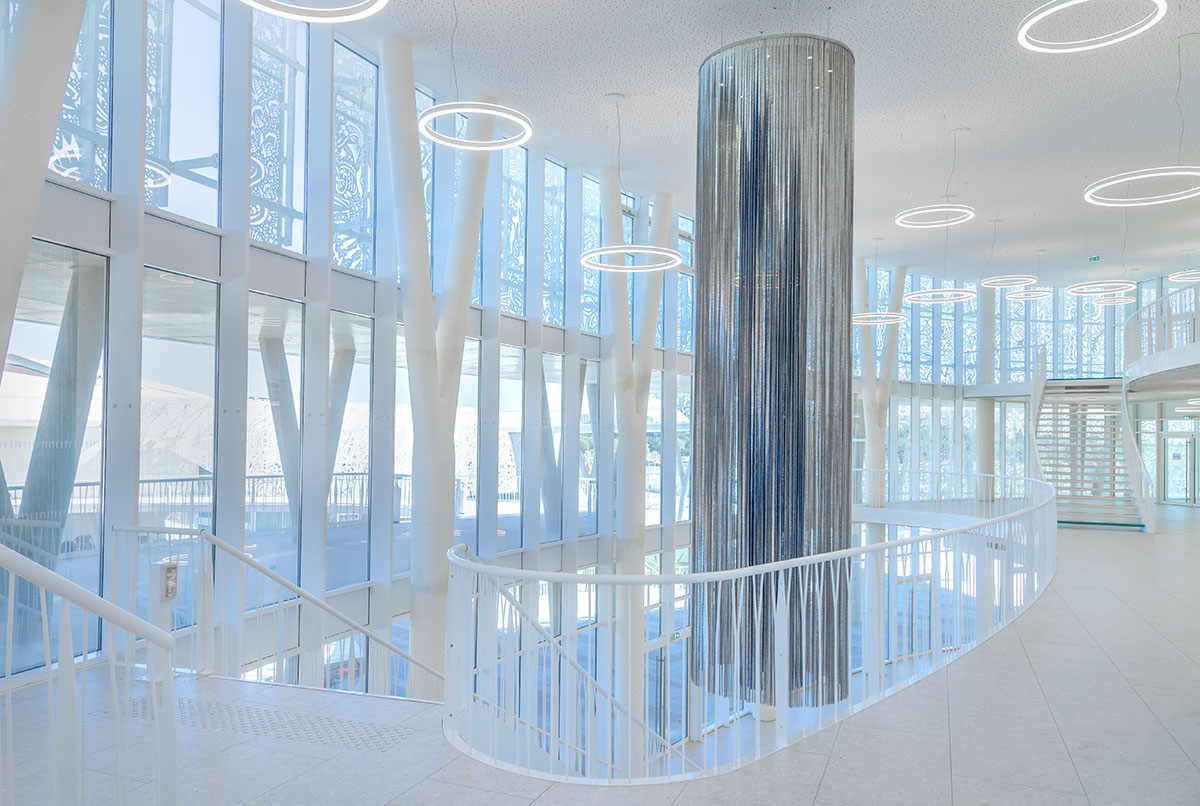
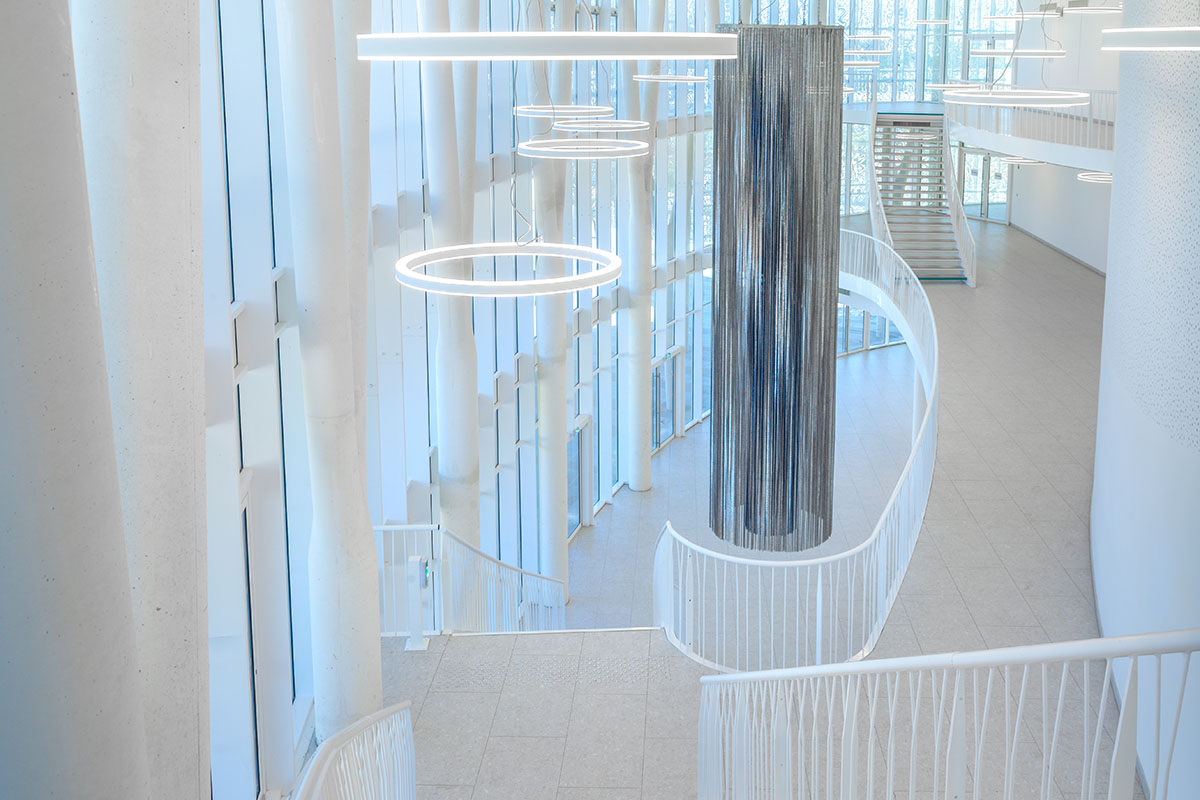
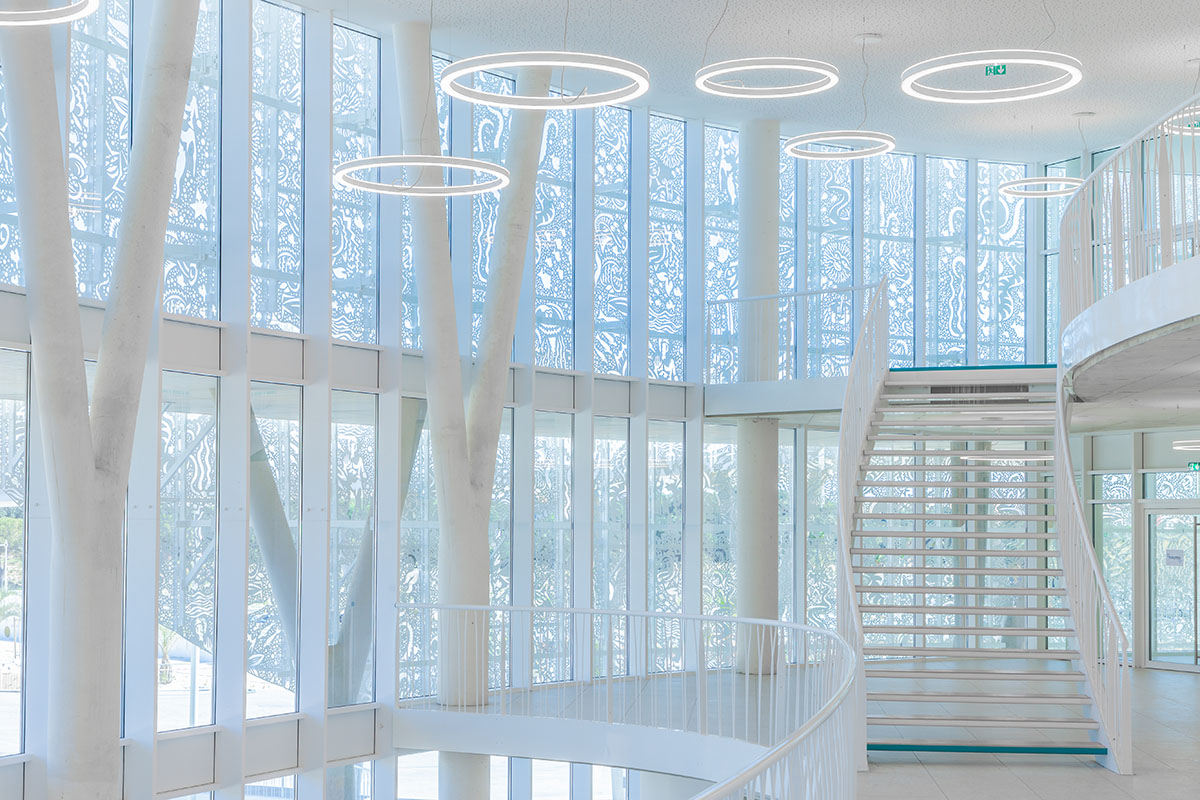
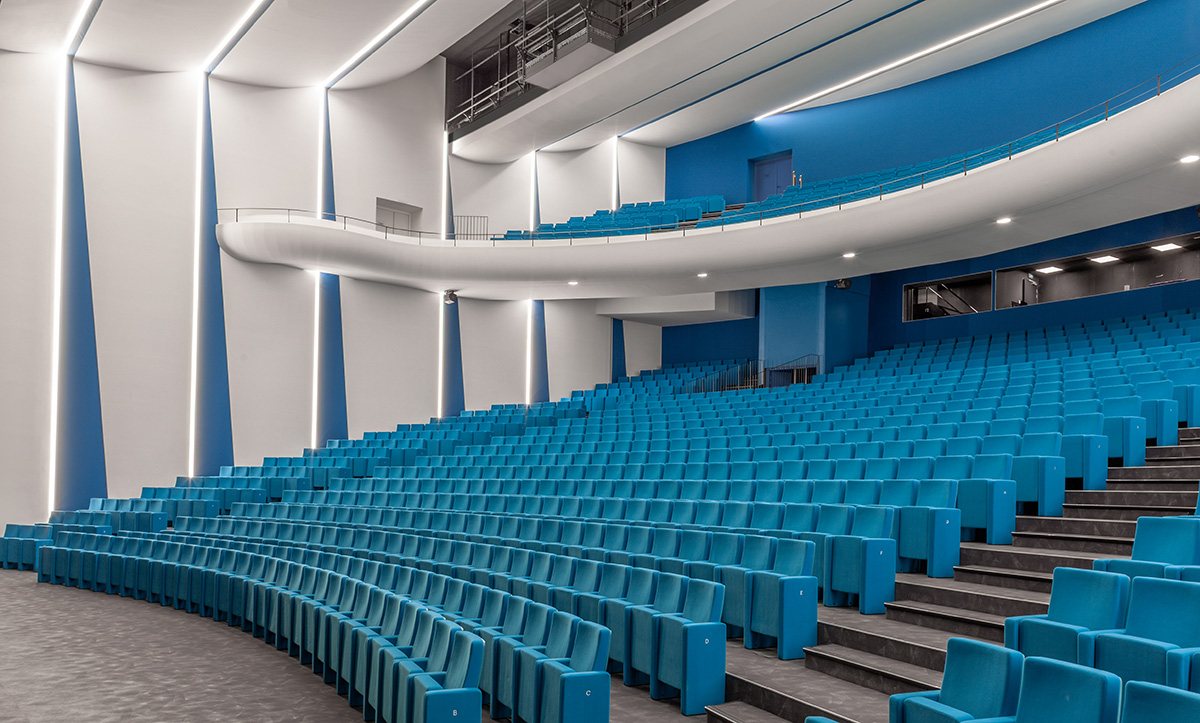
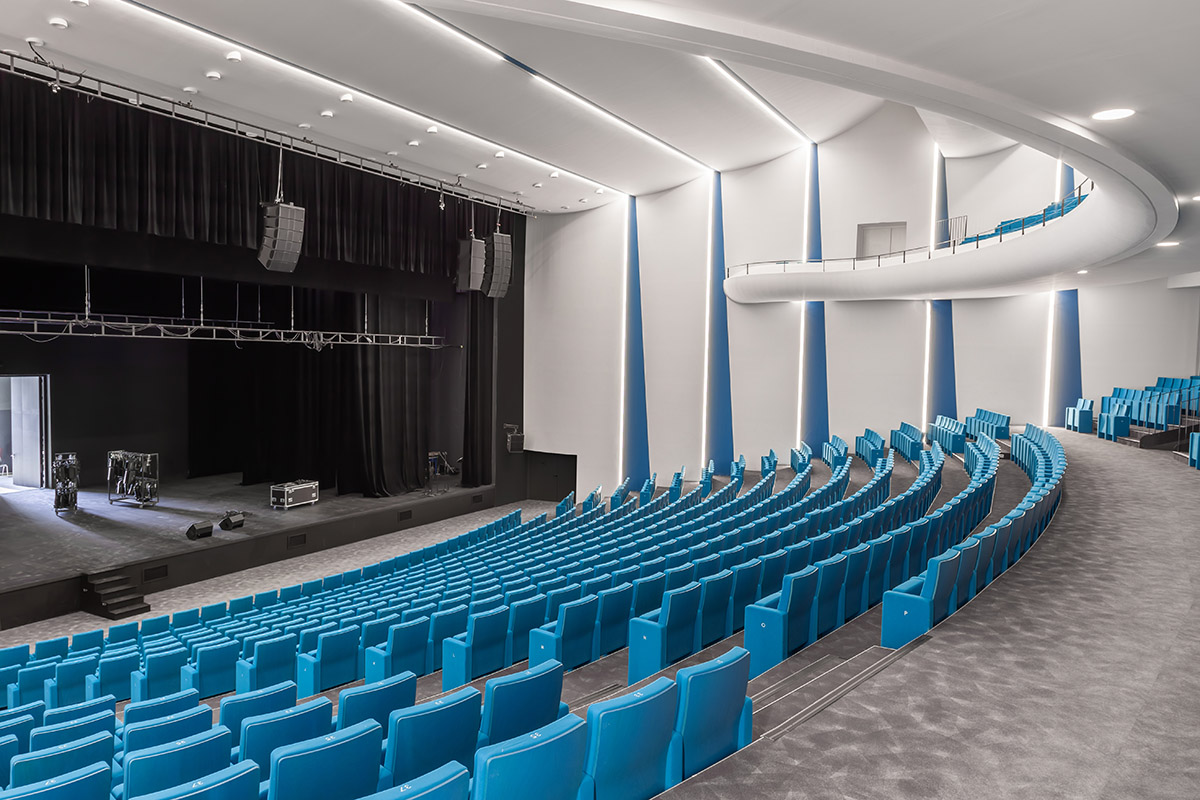

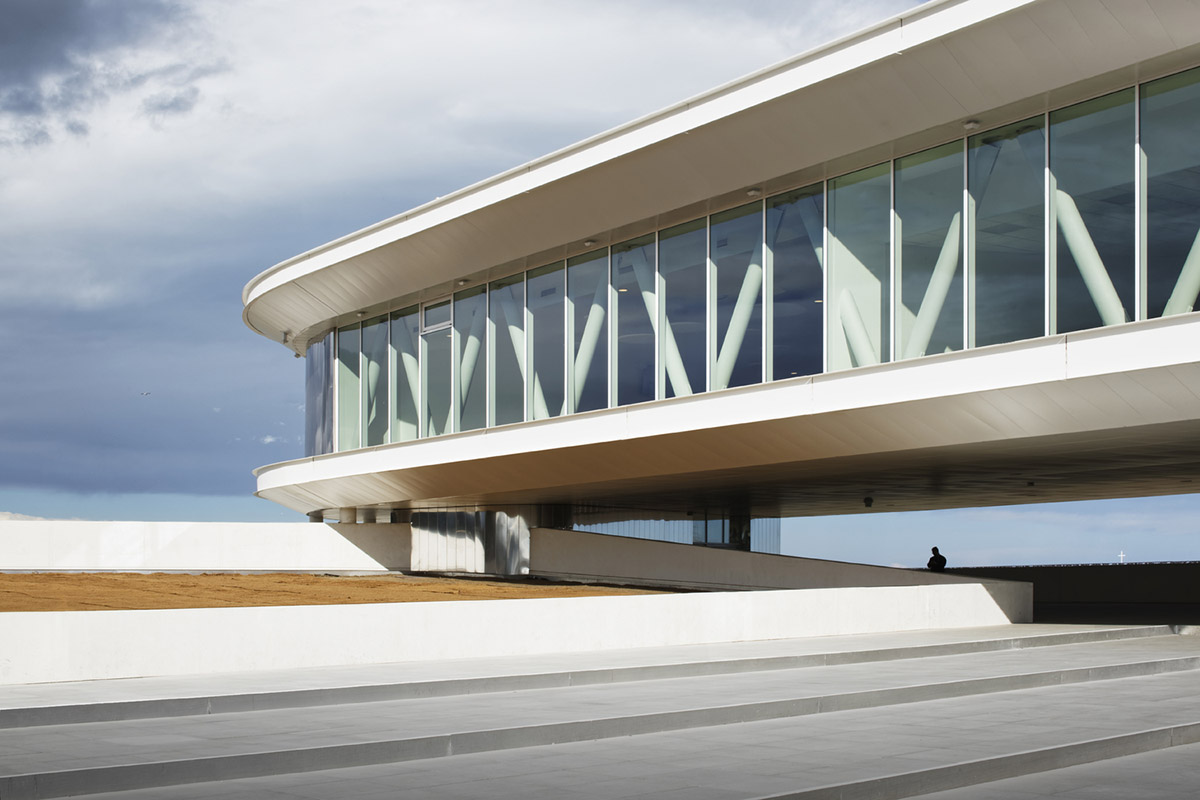
Image © Camille Gharbi
Image © Camille Gharbi

Image © Camille Gharbi

Image © Camille Gharbi
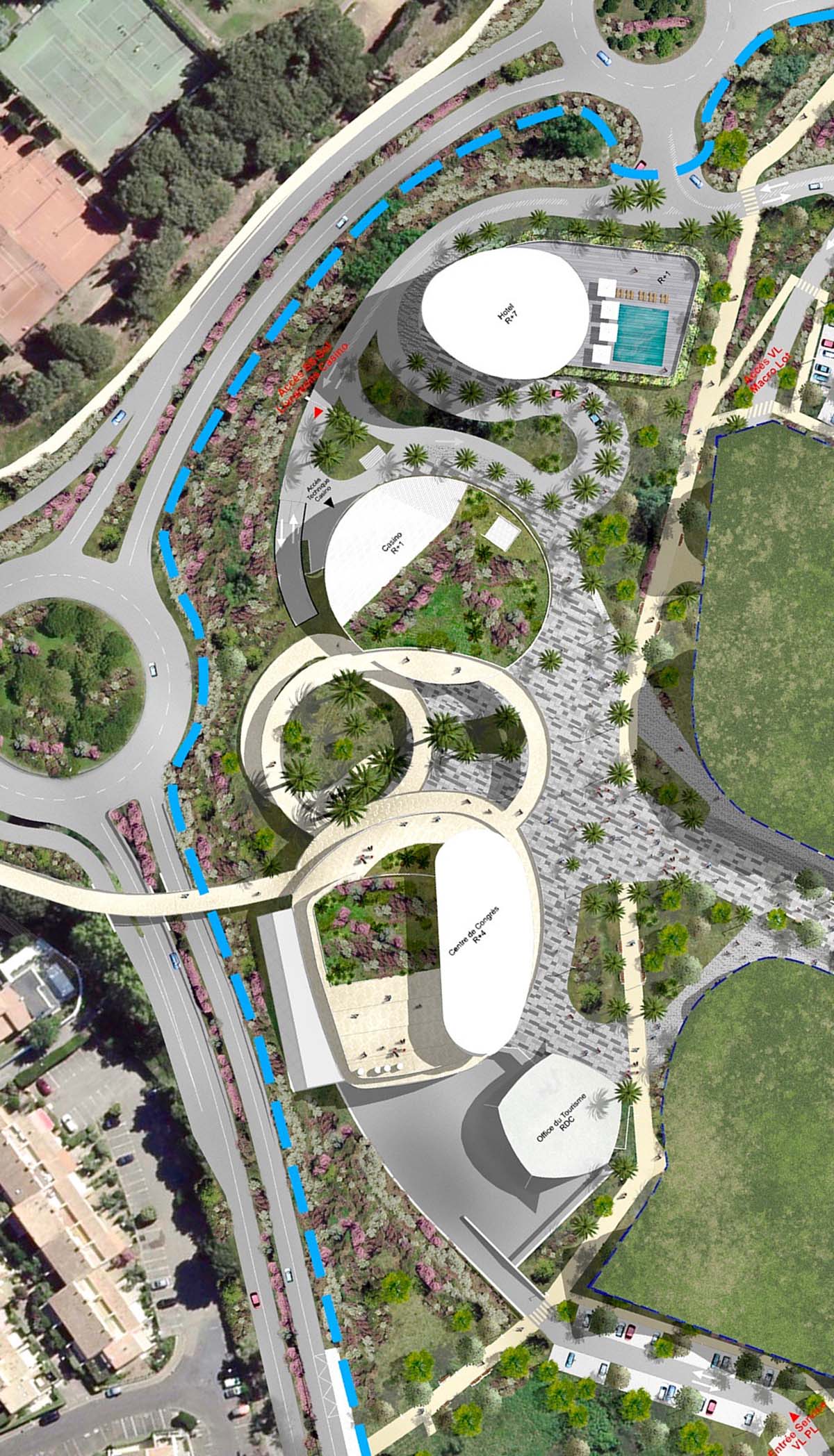
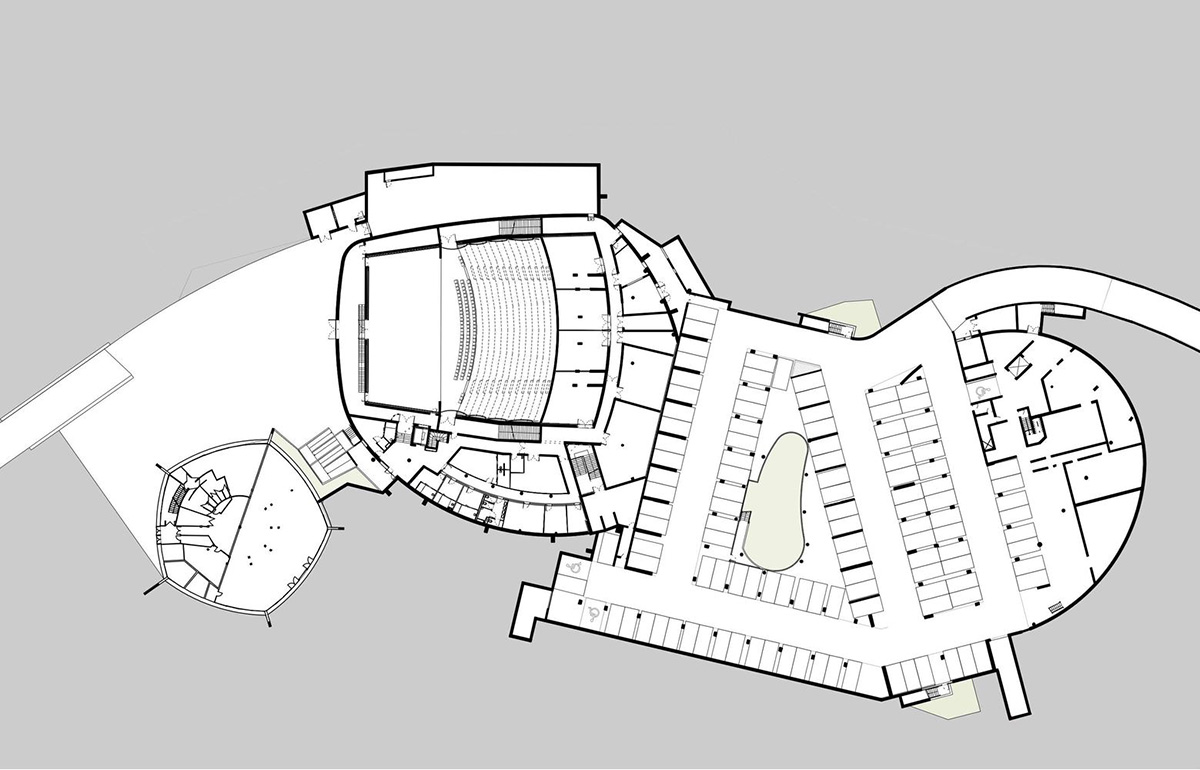
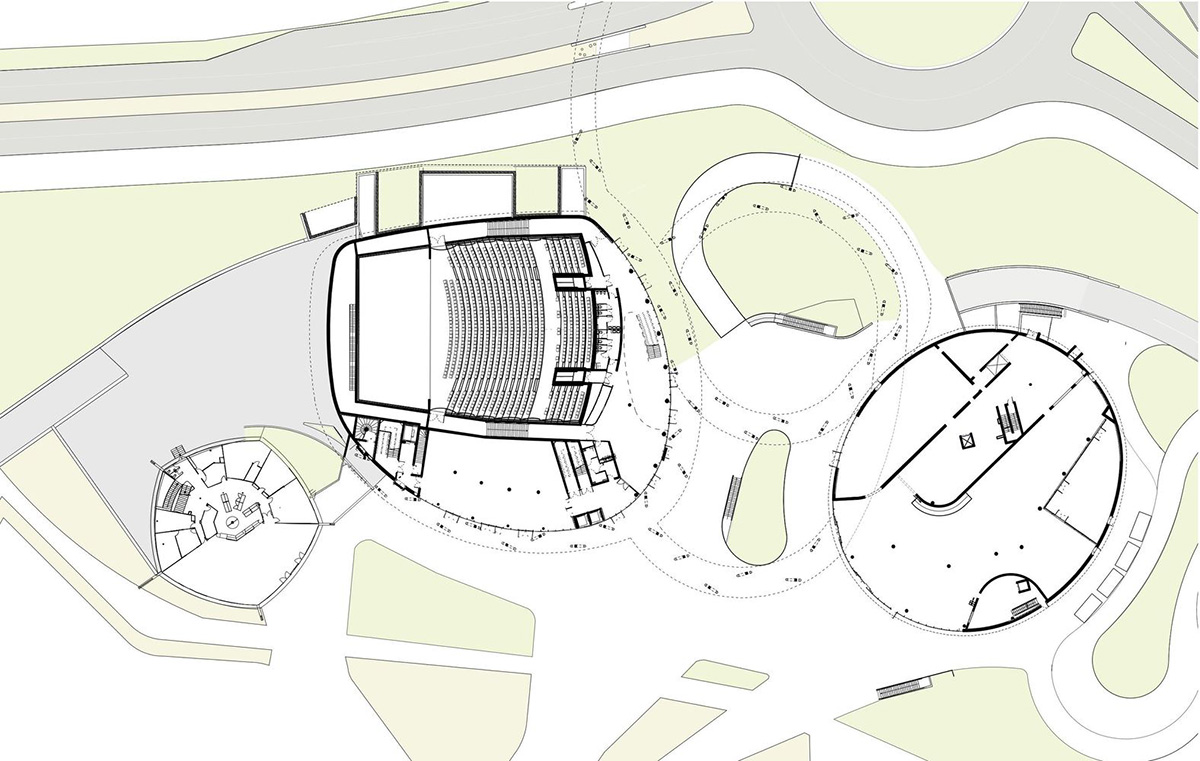
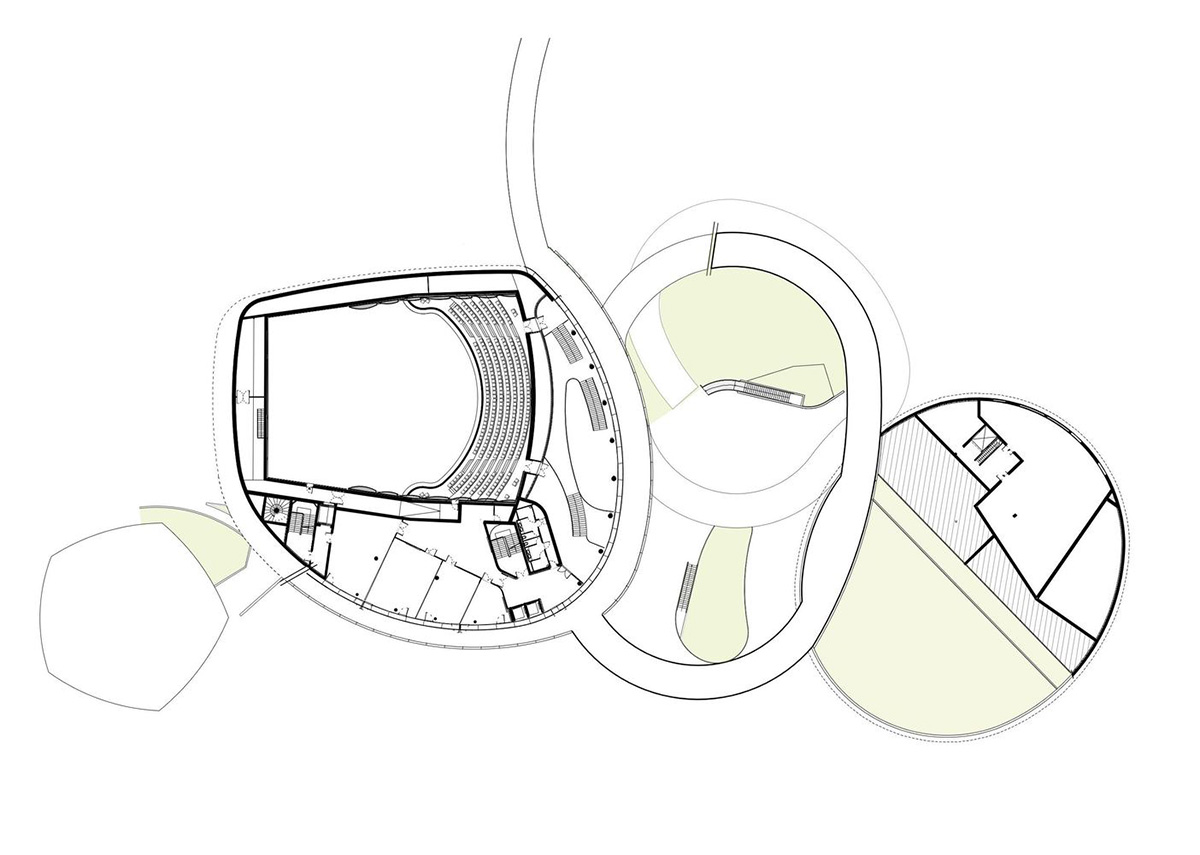
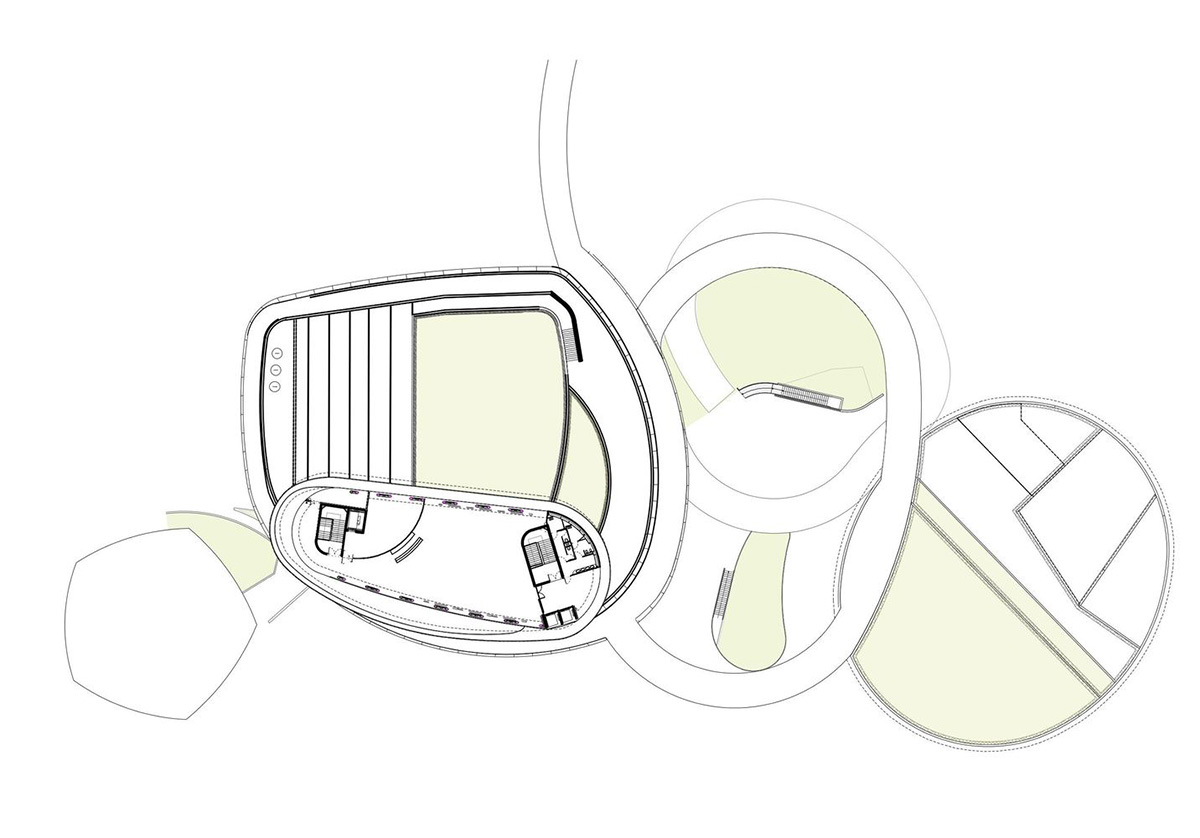
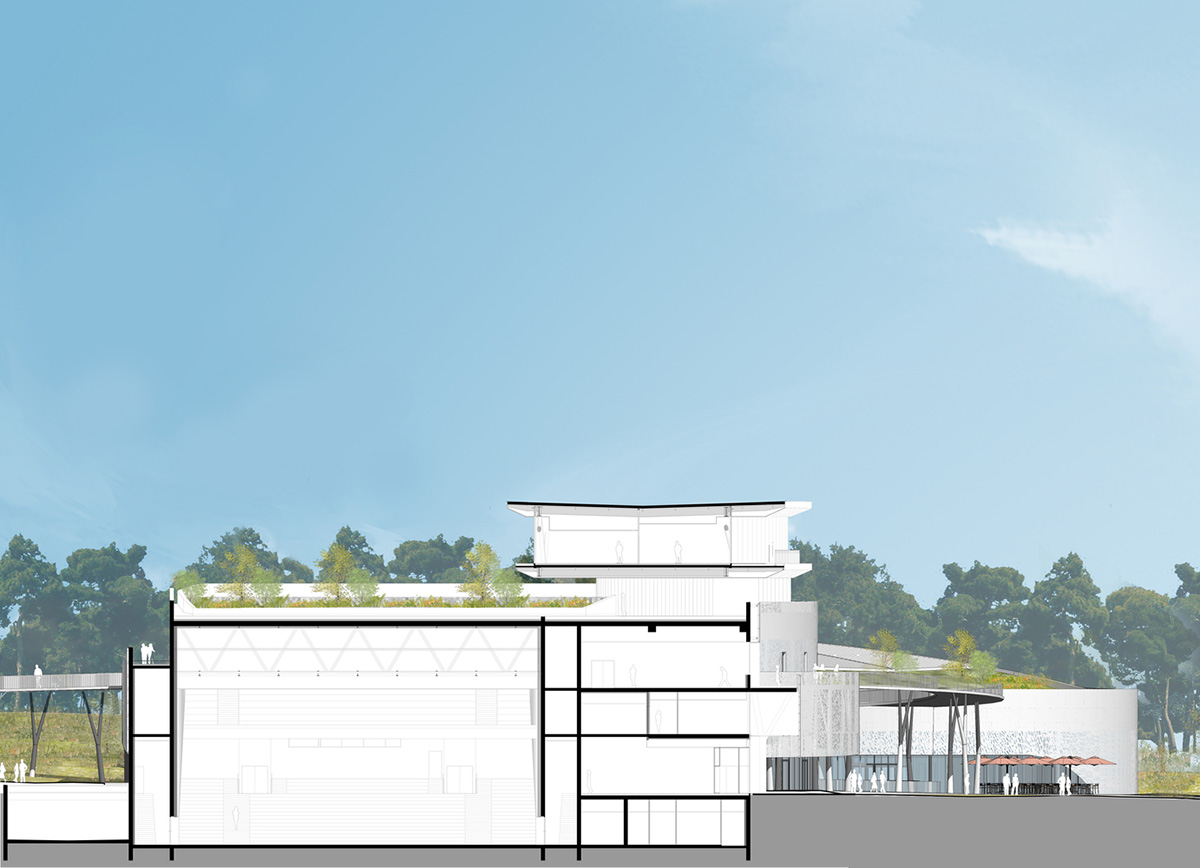

Project facts
Lead architect: A+Architecture
Associate architect: Philippe Escamez Architecte
Executive project manager / Scheduling, overseeing and coordination of the works: Arteba
Scenography: Crea Factory
Structural engineering: Terrell
Construction economics: L’Echo
Utilities and electricity: Celsius Environnement
Earthworks, Roads & Utility Services and electricity (high voltage A, low voltage A, street lighting): Gaxieu
Water supply & sanitation, Roads & Utility Services, electricity (high voltage A): Prima Groupe
Demolition Ginger: CEBTP
Thermic & environmental assessment: Celsius Environnement
Landscaping: Agence TER paysagistes / PMC Creation
Acoustics: Cabinet Vincent Hedont
Top image © Camille Gharbi
All images © Benoit Wehrlé unless otherwise stated.
> via A+Architecture

